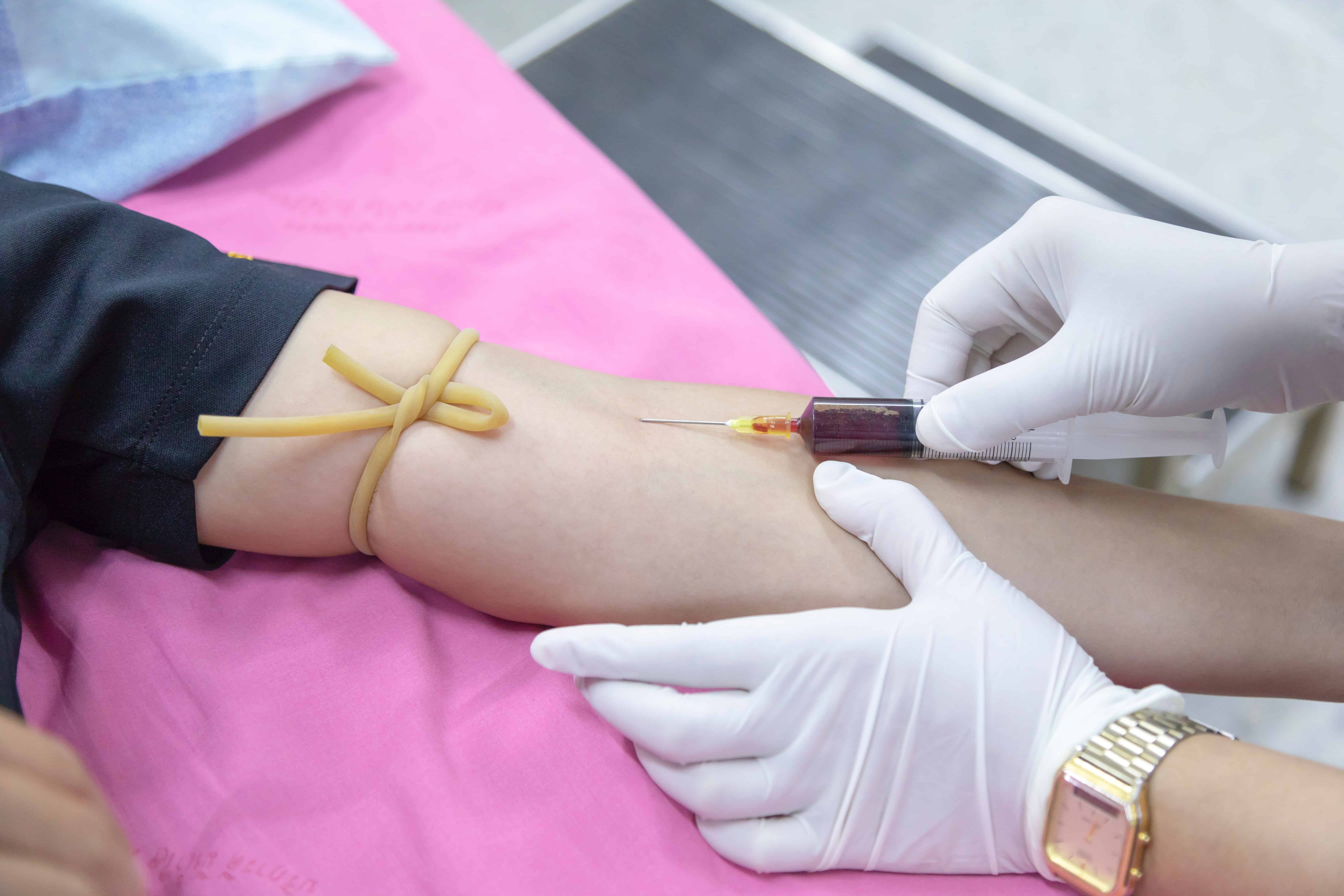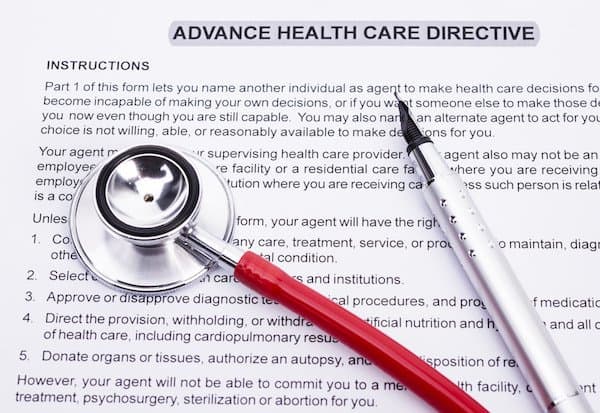People often lament the colonoscopy as a harbinger of middle age. It signifies your passage into an era where health concerns increase while personal dignity decreases. But the colonoscopy is only one of many health screenings you should have once you turn 50.Consult your primary care physician to learn what tests and immunizations she recommends for your specific age and health risks. But here are typical health screenings you need after age 50.
Blood pressure
High blood pressure can lead to heart attack, stroke, eye and kidney problems. Ministrokes may go unnoticed, but they can add up to multiple health problems – including vascular dementia.
If your blood pressure is lower than 120/80, checking it twice a year is generally fine. But if it’s higher or you have other risk factors, your doctor may want to check it more often.
Cholesterol
Heart disease is the #1 cause of deaths in the US. Despite what you may have heard, it’s the #1 killer of women as well as men. Heart disease causes one in three women to die every year.
People should start checking their cholesterol levels every 4-6 years in their twenties. But more regular cholesterol tests are some of the more important health screenings you need after age 50.
Optimal cholesterol levels are:
- Total cholesterol less than 200 mg/dL
- LDL (“Bad” cholesterol) less than 100 mg/dL
- HDL (“Good” cholesterol) more than 60 mg/dL
Cardiologists may want their patients to get even better cholesterol readings than this. When warranted, they can prescribe medication to assist you in reducing your cholesterol.
Diabetes
More than 30 million American adults have diabetes – nine percent of the population. Another 84 million have prediabetes, a condition that can lead to type 2 diabetes within five years if not treated.
According to a report released in 2017 by the CDC, only 1 in four adults living with diabetes knew they had it. Only 11.1% of people with prediabetes knew they had the condition.
The older you are, the more likely you are to have diabetes. Four percent of adults ages 18-44 (4%) have received a diabetes diagnosis. Among those ages 45-64 years, 17 percent have diabetes. But one in four adults 65+ has this disease.
Diet and weight often contribute to the onset of type 2 diabetes. If you think you’re at risk, talk with your primary care doctor about this important health screening.
Other blood tests
Periodic checkups will provide opportunities for comprehensive blood work like CBC (Complete Blood Count). Here are additional tests to ask about once you’re 50 or older:
Hepatitis C
Baby Boomers are five times more likely to have a Hep C infection than other adults. This is because they may have been exposed to Hep C through a blood transfusion or other risk factors before the virus was discovered in 1989.
The Hep C screening is a test you need to do only once unless it comes back positive. Other tests for Hep A and Hep B may be warranted if you have relevant symptoms or lifestyle considerations (Hep B). This chart summarizes the different types of hepatitis, causes, symptoms, treatments and preventions.
Vitamin B12
You may not realize you’re low in B12. Effects of the deficiency can be subtle, like numbness or weakness in the arms or legs and/or balance problems. What’s more, many people associate these symptoms with normal aging and don’t think to screen for a vitamin deficiency.
Yet low B12 levels are the most common nutritional deficiency in the developing world. And possibly in the US as well. The risk is especially high if you’re over 50. Up to 30% of people in this age group have atrophic gastritis, a thinning of the stomach lining that reduces the amount of B12 absorbed by the small intestine.
Vegetarians and vegans are at highest risk since most food sources of B12 (other than fortified cereals) are derived from animals. Ask for a test to check your B12 level when your medical team is ordering other blood work.
Vitamin D
Many Americans are deficient in Vitamin D. You may reduce consumption of milk and milk products over the years. You may spend less time outdoors. It also gets harder for your body to synthesize Vitamin D as you grow older.
So check your Vitamin D level when you’re getting other annual blood tests. Take a supplement if needed.
HIV/AIDS
If your lifestyle warrants it, get tested for HIV/AIDS. The Centers for Disease Control and Prevention (CDC) have approved two home test kits. Each uses finger pricks and urine samples to diagnose HIV and other sexually transmitted diseases.
If you think you may be at risk for HIV, screen yourself in the privacy of your own home. HIV is now a manageable health condition. But the earlier you detect the virus, the sooner you can begin treatment.

from CDC:https://www.cdc.gov/nchs/products/databriefs/db254.htm
Cancer screenings
While heart disease remains the top cause of mortality in the US, cancer is catching up. Cancer already is the leading cause of death among Hispanic populations and non-Hispanic Asians and Pacific Islanders. In 2000 it was the #1 cause of death in two states. In 2014 that number had grown to twenty-two.
The following cancer screenings need to become part of your post-50 health routine.
Colonoscopy
People turn 21 and get their first legal drink. They turn 50 and get a colonoscopy. It doesn’t seem fair. But getting a colonoscopy and other colon cancer tests at the direction of your doctor is important. Most people get tested every 5-10 years. Colon cancer is the second-leading cause of cancer deaths among people in the US. When you’re over 50, your chance of having it goes up.
Drinking that MoviPrep stuff to prepare for a colonoscopy isn’t fun, but early detection could save your life.
Mammogram
Breast cancer kills over 40,000 women per year. Mammography is the most effective screening tool available now for finding breast cancer. Different authorities recommend slightly different intervals for when women should have mammograms. For details, see the chart on this page.
In general, the recommended guidelines suggest women with average risk of breast cancer should get a mammogram every 1-2 years starting at age 40. Women at higher risk for breast cancer should consult with their doctor about additional tests.
Pap smear
Most women receive a Pap smear in conjunction with periodic gynecological exams. The Pap smear tests for cervical cancer. It also detects the presence of irregular cells that may suggest cancer will develop in the future.
Most doctors recommend that women ages 21-65 get a Pap test every three years. Here’s a piece of good news, however. Once you’re 65 or if you’ve had a hysterectomy that included removal of the cervix, you don’t need to do Pap smears anymore. Gotta look on the bright side!
Prostate cancer
Prostate cancer is the second-leading cause of cancer death among men. One in 38 men ages 40-60, and one in 15 men ages 60-70 will be diagnosed with prostate cancer. Yet not all men are getting regular prostate cancer screenings.
The most common test for prostate cancer is the PSA (Prostate-Specific Antigen) test. But its use is controversial. While PSA screening can allow doctors to diagnose and treat aggressive prostate cancers early, some practitioners think PSA testing does more harm than good.
Many prostate cancers are slow growing. They never grow large enough or troublesome enough to be diagnosed clinically. Put another way, a man is more likely to die of something else than he is to die of prostate cancer. Early detection often leads to surgery, radiation and other treatments that may be invasive and unnecessary.
Bottom line: Most men over age 50 continue to get the PSA test, which the FDA approved in 1994. Stay on top of recent developments in the science. Make the best decision for you.
Skin cancer
Despite widespread marketing of sunscreen products, skin cancer rates are rising. Nearly half of Americans who live to age 65 will have basal cell carcinoma or squamous cell carcinoma at least once.
Your primary care physician can identify suspicious spots during a routine checkup, but you should see a dermatologist for a more thorough head to toe exam. A specialist will biopsy any areas of concern.
Cancerous skin cancers can often be removed on an outpatient visit to your dermatologist’s office. Don’t put off dealing with odd-looking skin spots!
Immunizations
Vaccinations aren’t just for school-age children or travel to developing countries. Here are common immunizations for adults over age 50.
Influenza
Some argue that, since the flu vaccine addresses only the virus strains that are predicted to be strongest in a given year, it may or may not prevent you from getting the flu. Thus, they argue, it’s pointless to get a flu shot.
However, the inconvenience of a quick needle stick and possibly a sore arm outweighs the risk of a multi-day battle with the flu. Most medical experts advise you to go ahead and get a yearly flu shot, especially if you’re over 50.
As many as 50,000 Americans die of influenza-related causes each year. Don’t risk becoming one of them.
Tetanus, Diphtheria, Pertussis (Tdap)
You’ve probably had different versions of the immunizations against these serious diseases throughout your life. You may have had a DTP shot, a Td booster, and so on. Tetanus (lockjaw) and diphtheria are rare in the US today. Routine childhood vaccinations have reduced the incidence of pertussis (whooping cough) by 80%.
Adults over 50 should get a Tdap booster shot every 10 years. It’s particularly important for health professionals and anyone who has contact with a baby less than 12 months old. Grandparents and would-be grandparents, get your shots!
Measles, Mumps, Rubella (MMR)
Your medical team may recommend this vaccination for you. The clinic I go to, for example, is sending reminders to all adult patients my age. Even though I was vaccinated for MMR as a child, they suggest I do another immunization.
I had them verify the presence of MMR titers during a routine blood test, so I didn’t need to get this shot. Check with your medical team to see what they recommend for you.
Chickenpox (Varicella)
When we were children, there wasn’t a varicella vaccine. But now there is. Your kids probably received it. If you didn’t have chickenpox as a child, go ahead and get the vaccine now.
Shingles
The varicella-zoster virus causes both chickenpox and shingles. Even if you had chickenpox as a child, the virus stays dormant in your body. It can reactivate years later and cause shingles, a painful disease you don’t want to experience.
There are two types of vaccines against shingles. The older one is called Zostafax. But Shingrix, which came out in 2018, provides superior protection against shingles. The Shingrix immunization series consists of two shots, 2-6 months apart.
Even if you had a Zostafax vaccination, you should get Shingrix. The CDC recommends that all adults over age 50 receive Shingrix vaccinations. Since it’s a new vaccine, it can be hard to find. But call around and/or get on your clinic’s waitlist Shingrix vaccine availability.
Pneumococcal Disease
There are two vaccines against pneumococcal disease, a serious condition that kills thousands of US adults each year – including 16,000 older adults. The CDC recommends that adults over 65 receive at least one pneumococcal vaccine. But in some situations, you should ask your medical provider for it earlier.
You can investigate the specifics on pneumococcal immunization at the CDC website. If you are over 65, or younger but in the high risk group, don’t delay getting this important vaccination.
CDC summary
The CDC site has an excellent chart that summarizes key vaccinations and what you should do when. Check it out here.
Other health screenings you need after age 50
The list of other health screenings you need after age 50 includes the following.
Dental exam
Get your teeth cleaned and have the dentist look at them at least once per year. Oral health becomes more important the older you get. A comprehensive periodontal exam will check your teeth, gums, bite, bone structure to assess risk factors.
Eye exam
Have one at least every 2 years. The American Optometric Association recommends annual eye exams for people over 60. Older adults may experience age-related macular degeneration, glaucoma, cataracts and other vision disorders.
Hearing test
Hearing loss is often a natural part of aging. It also can result from an infection or other medical condition. Different organizations suggest starting regular hearing tests at varying ages. But many experts recommend that you get a hearing test every 3 years starting at age 50.
Bone density scan
Do this to check for potential osteoporosis. A bone density scan is particularly important for women over 65 and men over 70. Also if you’re over 50 and have broken a bone recently. Bottom line: if you’re concerned, get tested earlier rather than later.
Depression
Midlife is a time of immense physical and emotional change. Hormones, relationship, work environment and other factors can make a person susceptible to depression. Don’t hesitate to talk with a medical professional if you think this might apply to you.
Cognitive
Although cognitive impairment doesn’t usually show up until a person is older, it’s not a bad idea to ask about cognitive screening. If only to obtain a baseline evaluation. You definitely should consult your doctor if you have any thinking or memory-related problems.
The Alzheimer’s Association has much more information on cognitive assessment tools and when you should use them.
Take charge of your health to live your best midlife
You don’t have to rush out and do all these recommended tests as soon as you turn 50. But if you think you’re at risk for any of the conditions, don’t delay checking things out. Your best bet for continued health is early detection and treatment.
You can work a lot of these screenings into routine doctor appointments. Keep a list of things you want to ask about.
And by all means, get the immunizations you need. This is an easy way to prevent much more serious diseases. You may not be able to avoid something like cancer, but you can prevent shingles.
In summary, do what you can to stay healthy. Get the health screenings you need after age 50. And use the information they give you to live your best midlife!
Images via: Shutterstock, Wikimedia Commons, Amornthep Srina from Pexels, AHR
Disclaimer: This post is intended for educational purposes and does not constitute medical advice. You should always check with your physician to determine the appropriate screenings and immunizations you need based on your own health condition.








